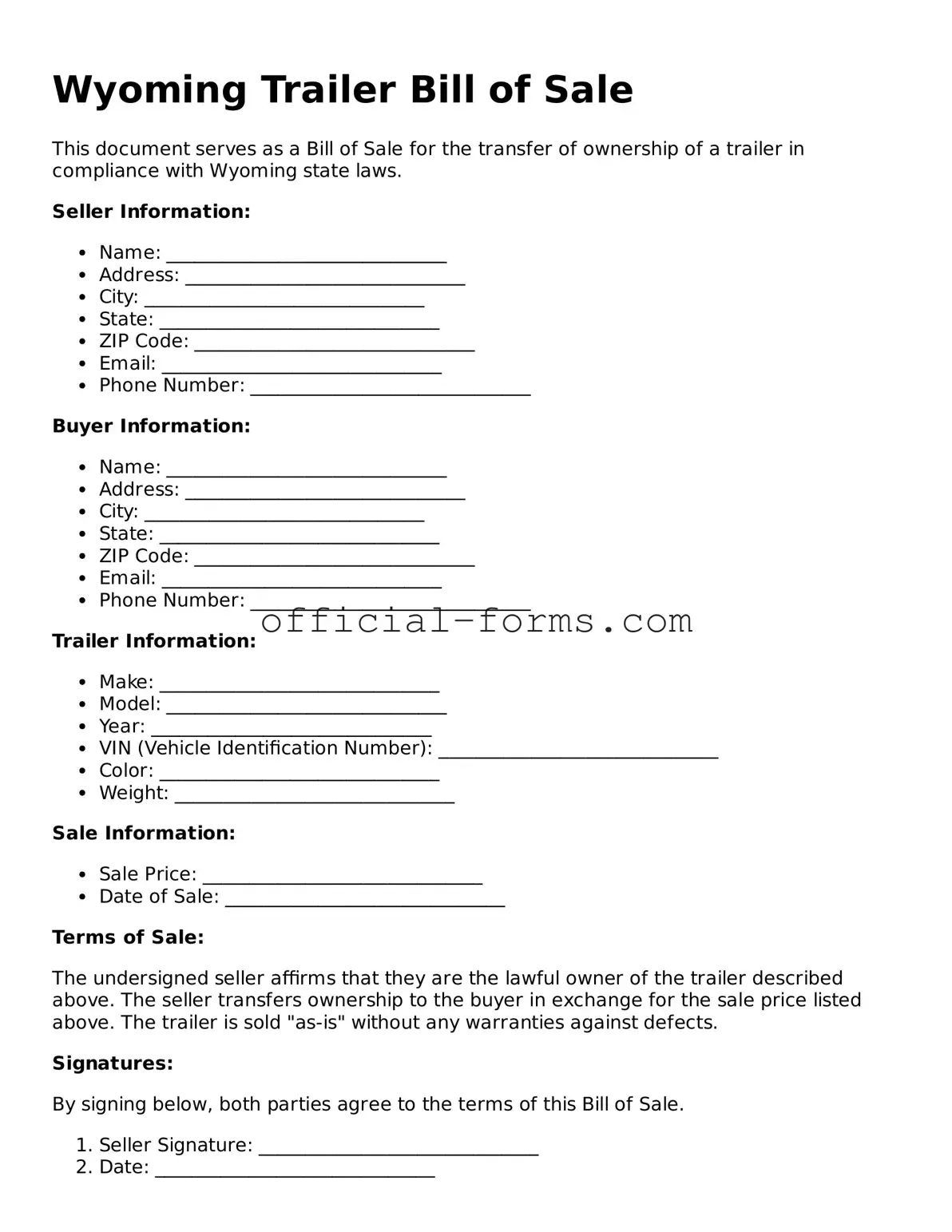Filling out the Wyoming Trailer Bill of Sale form can seem straightforward, but many people make common mistakes that can lead to complications. One frequent error is failing to provide complete information about the trailer. It's essential to include details such as the make, model, year, and Vehicle Identification Number (VIN). Incomplete information can cause delays in registration and may lead to issues during future sales.
Another mistake involves incorrect pricing. Sellers should clearly state the sale price of the trailer. If the amount is left blank or inaccurately filled out, it may create confusion or disputes later on. This detail is crucial for both the seller and the buyer, as it establishes the value of the transaction.
Many individuals overlook the importance of signatures. Both the seller and the buyer must sign the bill of sale for it to be valid. Failing to obtain the necessary signatures can render the document ineffective, leaving both parties without legal protection. Additionally, including the date of the transaction is vital; without it, the timeline of ownership may become ambiguous.
Another common error is not providing accurate contact information. Buyers and sellers should ensure that their names, addresses, and phone numbers are correct. This information is essential for any future communication or if issues arise post-sale. Inaccurate contact details can lead to misunderstandings and difficulties in reaching one another.
People sometimes neglect to check the trailer's title status before completing the bill of sale. Ensuring that the trailer has a clear title is crucial. If the title is not transferred properly, the new owner may face legal challenges regarding ownership. It’s advisable to verify that there are no liens or outstanding debts associated with the trailer.
Another mistake is failing to keep copies of the bill of sale. Both parties should retain a copy for their records. This document serves as proof of the transaction and can be useful for future reference, especially if any disputes arise. Without a copy, it may be challenging to establish ownership or the terms of the sale later on.
People often forget to include any additional terms or conditions of the sale. If there are specific agreements between the buyer and seller, such as warranties or included accessories, these should be clearly documented in the bill of sale. Omitting these details can lead to misunderstandings and disputes after the sale.
In some cases, individuals may not familiarize themselves with the legal requirements for a bill of sale in Wyoming. Each state has its own rules, and being unaware of these can lead to mistakes. Researching the specific requirements for Wyoming can help ensure that the form is filled out correctly and complies with state laws.
Lastly, rushing through the process can lead to errors. Taking the time to carefully read and complete the form can prevent mistakes that could complicate the sale. A thorough review before finalizing the document can save both parties from potential headaches down the line.

